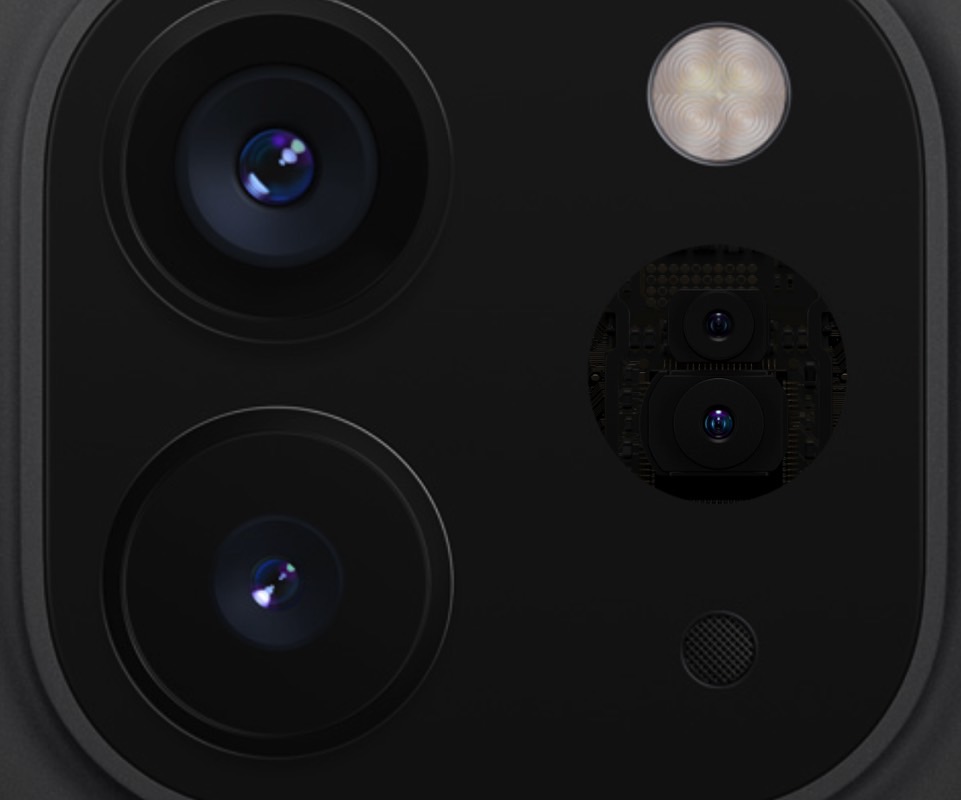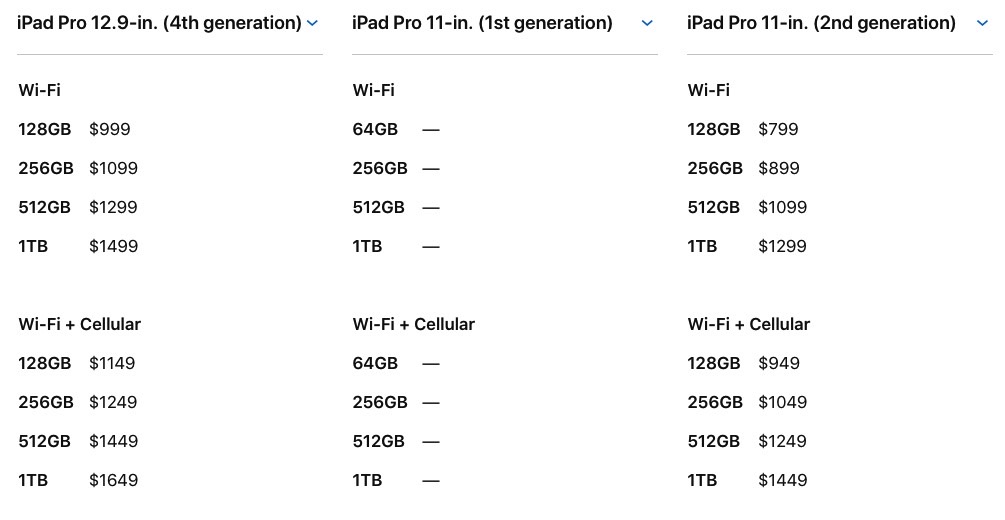- Apple just announced brand new 2020 iPad Pro models, which feature several upgrades over their predecessors like a new LiDAR camera system and a more powerful processor.
- The iPad Pro hardware contains other clues for the specs of Apple’s upcoming iPhone 12 series, with built-in storage being the biggest surprise.
- The cheapest versions of the new iPads come with twice the storage of their predecessors for the same price, a trend that could carry over to APple’s next iPhones.
- Visit BGR’s homepage for more stories.
Apple on Wednesday unveiled new hardware, as was previously rumored, including the 2020 MacBook Air, and the brand new iPad Pro models. The iPads offer a variety of improvements over the 2018 iPad Pro generations, including a dual-lens camera system that features a third depth-sensing LiDAR sensor, trackpad support, as well as a brand new Magic Keyboard with an interesting floating design and an additional USB-C port for battery charging. But there’s even more to the 2020 iPad Pro story, as the new tablet’s specs might contain key clues for what’s coming to the iPhone 12 series later this year.
The LiDAR scanner system is one such example, as the iPad Pro isn’t the only iOS device expected to sport 3D cameras on the back. Several reports claimed that the camera systems on the iPhone 12 Pro will include 3D sensors that will power improved AR experiences. Even without the iPad Pro confirming that Apple has been working on this particular AR tech for mobile devices, it makes sense to assume the iPhone 12 will have a depth-sensing camera on the back. That’s because Apple is really pushing AR with its products. Not to mention that all the iPhone 12 competitors that matter ship with Time-of-Flight (ToF) sensors on the back.
The LiDAR camera design seen below could be used on the upcoming iPhone 12. But it’ll be interesting to see what the iPhone 12 Pro/Max camera will look like with an additional lens.

It’s interesting to note that Apple didn’t use the Pro to jump to the upcoming A14 chip that will power the iPhone 12 series, which is an indication that the new iPads still rely on 7nm processors like the previous generation.
The new iPad Pro also features a new type of processor, the A12Z, which is the first Z chip that Apple made so far. The iPads usually get X versions of the A-series chip that powers the iPhone. The A12X is the chip that powers the 2018 iPad Pro, a variation of the A12 CPU inside the iPhone XS and XR phones. What’s new about the Z is that it sports an eight-core GPU compared to the seven-core GPU in the 2018 Pro models. iPhones have quad-core GPUs. The iPhone GPU will be upgraded for this year’s model, but it’ll be interesting to see if Apple increases the core count for the iPhone 12.
Other new features include a 120Hz ProMotion display. The 2020 iPad is certainly not the first iPad to sport the technology, but 2020 might be the first year when Apple brings 120Hz screens to the iPhone.
The iPad Pro also comes with an “enhanced thermal design,” according to Apple’s iPad Pro page on its website, meant to support “higher peak and longer sustained performance.” We’ve seen plenty of phones sporting new thermal designs, especially of the gaming variety. It’ll be interesting to see whether there’s room inside the iPhone 12 for an improved thermal design.
One other iPad Pro feature that Apple highlights is the “studio-quality mics.” The tablet has “five studio-quality microphones for capturing super clean audio and the quietest details,” which is the kind of upgrade that would also benefit the iPhone 12 series.

But the best upgrade the iPad Pro got is one that Apple hardly acknowledges. The iPad Pro now has a minimum of 128GB of storage, which is double the minimum of last year’s model. This may be an indication that the iPhone 12 will also ditch the 64GB storage tier since it’s simply not good enough for mobile devices right now. Of note, the 128GB iPad Pros still have the same pricing as the 64GB 2018 iPad Pro models — that’s $799 or $999 for the Wi-Fi only version.
The new iPad Pro tablets feature the same Face ID camera system, which might be an indication that the iPhone 12 TrueDepth camera won’t see any significant changes.
Finally, the cellular versions of the new iPad Pro only support 4G connectivity, but that’s not necessarily an indication that the iPhone 12’s won’t have built-in 5G support. If anything, it’s the 2020 iPhones that should be the first iOS devices to rock 5G support, just as they should be the first devices to sport Apple’s 5nm A14 chip.








